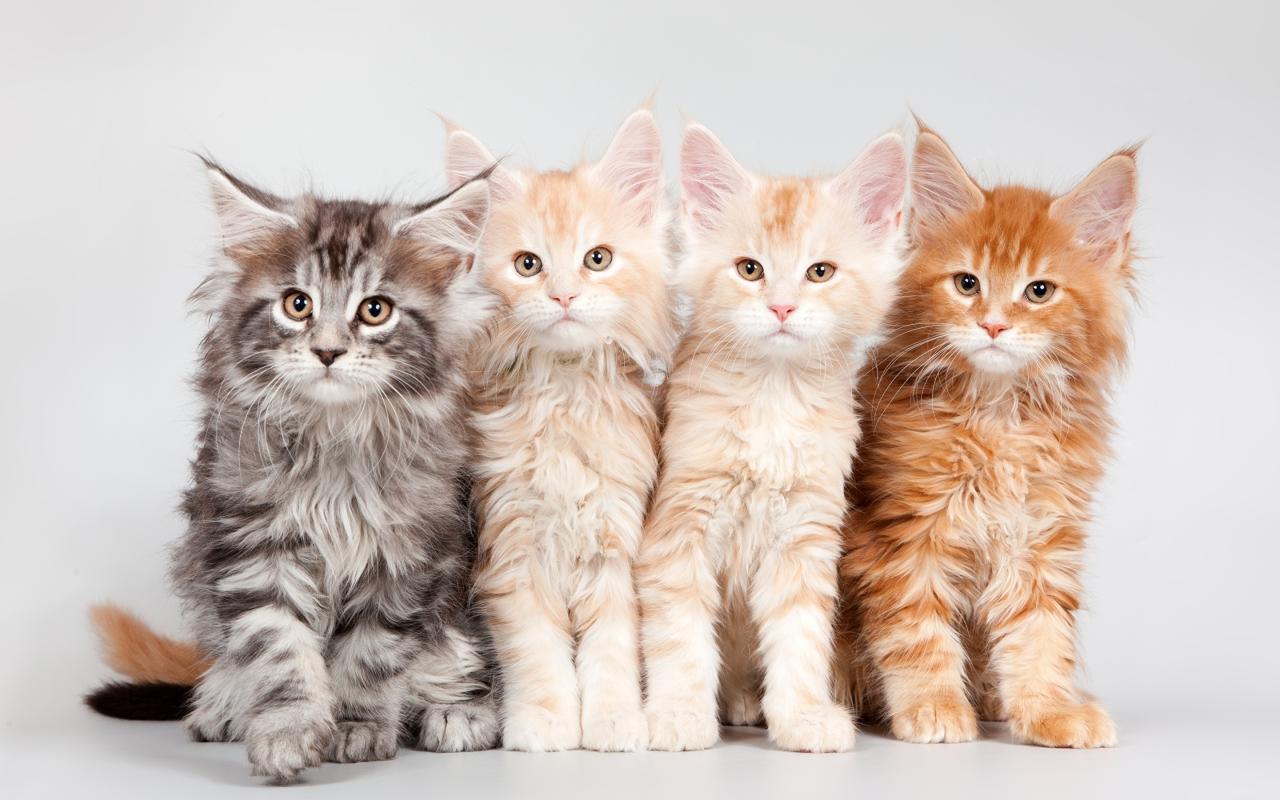Unveiling the captivating allure of the blue Maine Coon kitten, we embark on a journey to explore their distinctive traits, meticulous care, genetic heritage, nutritional needs, and the art of training and socialization. Prepare to be enchanted by their mesmerizing beauty and discover the secrets to nurturing their well-being.
Characteristics and Traits
The blue Maine Coon kitten is a stunning sight to behold, with its distinctive physical features and charming personality. These kittens possess a large, robust build, with a thick, luxurious coat that comes in various shades of blue, from a pale silvery-blue to a deep, rich navy.
Their eyes are typically a captivating shade of green or gold, adding to their overall allure.
Temperament
Blue Maine Coon kittens are known for their gentle and affectionate nature. They are playful and energetic, always ready to engage in a game of chase or a cuddle session. These kittens are highly social and thrive on human companionship, making them excellent pets for families with children or other pets.
Playful Nature, Blue maine coon kitten
Blue Maine Coon kittens are incredibly playful and love to explore their surroundings. They enjoy chasing toys, climbing furniture, and discovering new hiding spots. Their playful nature keeps them entertained for hours on end, making them a delight to watch.
Affectionate Nature
Despite their playful side, blue Maine Coon kittens are also incredibly affectionate and love to cuddle. They will often seek out their human companions for a nap or a gentle head rub. Their gentle purring and soft meows are sure to melt your heart.
Care and Grooming
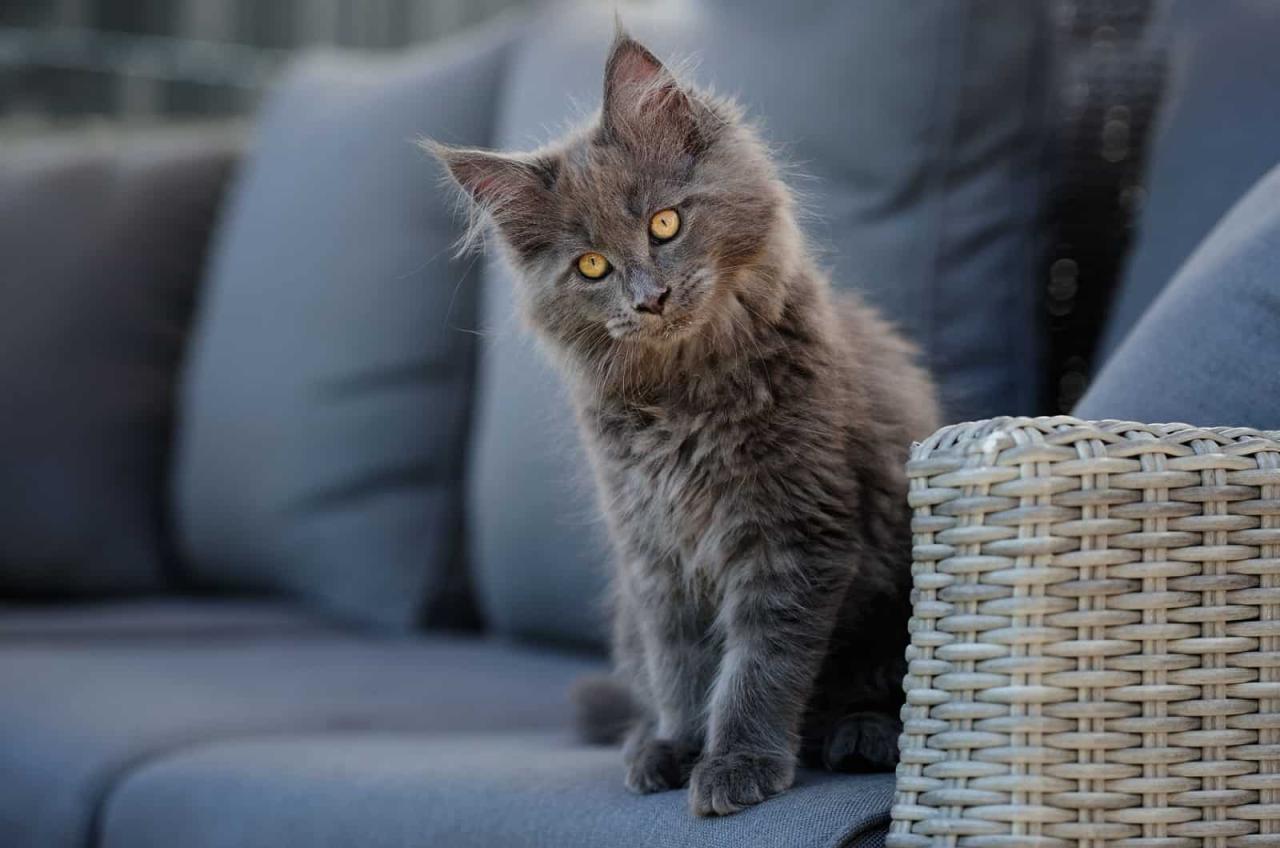
Blue Maine Coon kittens require meticulous grooming to maintain their stunning, silky fur. Their long, flowing coats demand regular brushing and occasional bathing. Proper nail trimming and dental care are also essential for their well-being.
Bathing
Blue Maine Coon kittens should be bathed every 4-6 weeks to keep their fur clean and free of mats. Use a gentle, kitten-specific shampoo and lukewarm water. Wet the kitten thoroughly, apply the shampoo, and gently massage it into their fur.
Rinse thoroughly and towel dry. Never use human shampoo, as it can irritate their skin.
Brushing
Regular brushing is crucial for blue Maine Coon kittens. Use a slicker brush or a wide-toothed comb to remove loose hair and prevent mats. Brush daily, paying particular attention to areas prone to tangles, such as the belly, legs, and tail.
Nail Trimming
Keep your kitten’s nails trimmed to prevent scratching and discomfort. Use a cat-specific nail clipper and trim only the tips of the nails, avoiding the quick (the pink part). If you’re not comfortable trimming your kitten’s nails yourself, consult a professional groomer.
Dental Care
Dental care is essential for blue Maine Coon kittens. Brush their teeth regularly with a soft-bristled toothbrush and cat-specific toothpaste. Start brushing their teeth early on to accustom them to the process.
Health and Genetics
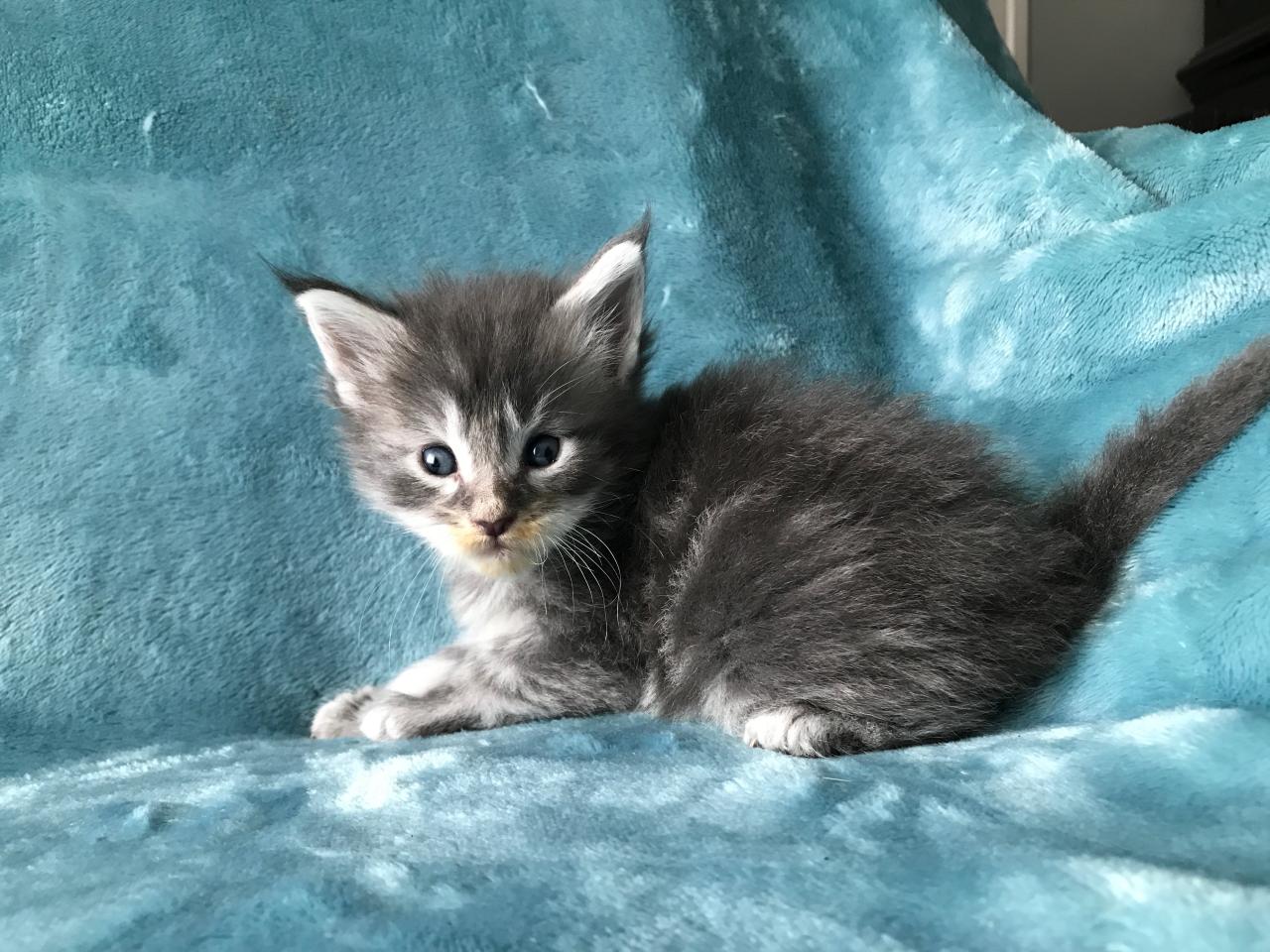
Blue Maine Coon kittens are generally healthy, but they may be prone to certain health issues, including:
- Hypertrophic cardiomyopathy (HCM): A condition in which the heart muscle becomes thickened, leading to heart failure.
- Polycystic kidney disease (PKD): A condition in which cysts develop in the kidneys, leading to kidney failure.
- Hip dysplasia: A condition in which the hip joint does not develop properly, leading to pain and lameness.
The unique blue coat color of Maine Coon kittens is caused by a recessive gene. This means that both parents must carry the gene for the kitten to inherit the blue coat color. Responsible breeding practices are essential to maintain the genetic diversity of blue Maine Coon kittens and reduce the risk of health problems.
Genetic Factors
The blue coat color of Maine Coon kittens is caused by a recessive gene, known as the dilute gene. This gene dilutes the black pigment in the cat’s fur, resulting in a blue color. The dilute gene is located on the X chromosome, which means that it is more common in female cats than in male cats.
Responsible Breeding Practices
Responsible breeding practices are essential to maintain the genetic diversity of blue Maine Coon kittens and reduce the risk of health problems. Breeders should screen their cats for genetic diseases, such as HCM and PKD, before breeding them. They should also avoid breeding cats that are closely related, as this can increase the risk of genetic disorders.
Diet and Nutrition
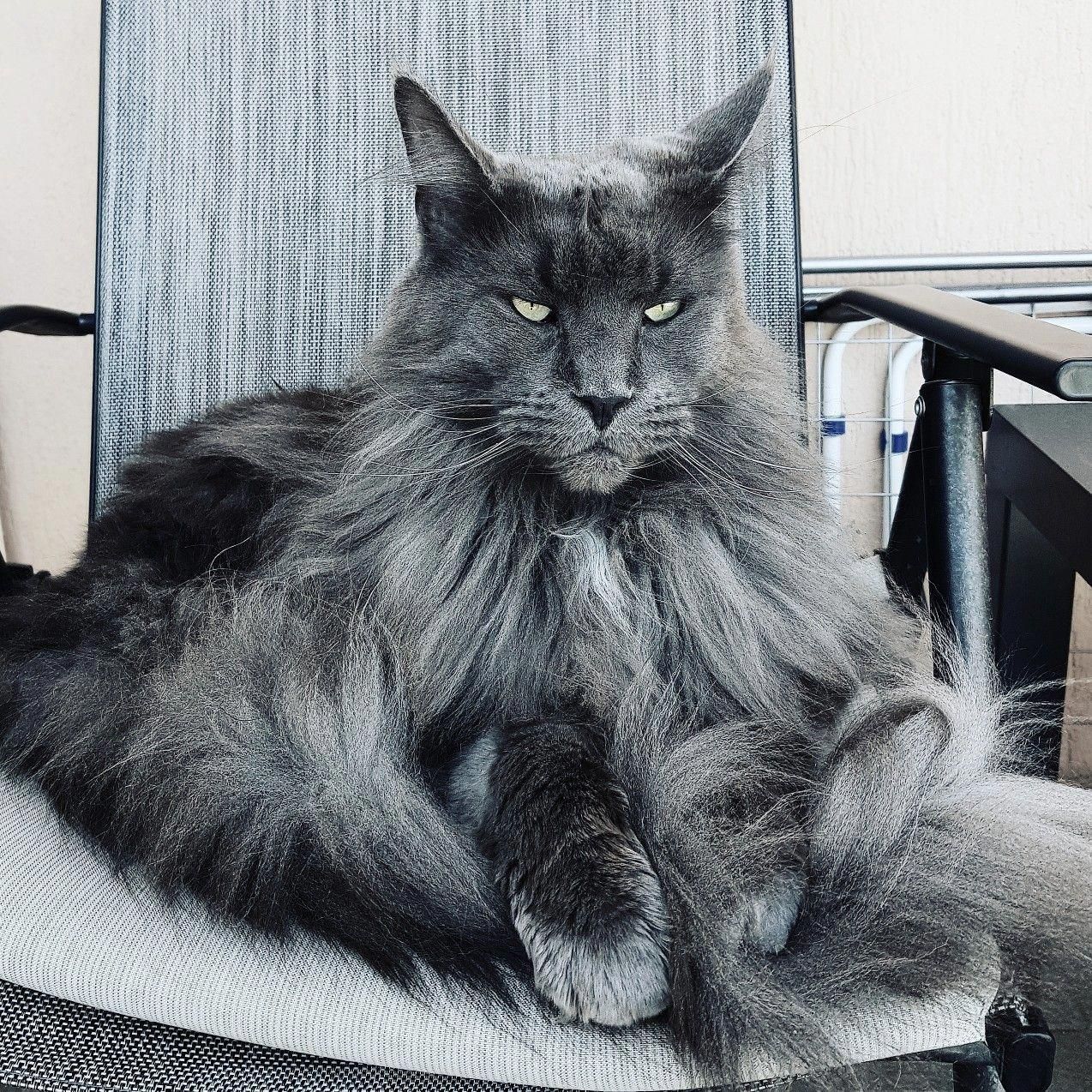
Providing a well-balanced and nutritious diet is crucial for the healthy growth and development of blue Maine Coon kittens. Their unique nutritional needs must be carefully considered to ensure they receive the necessary nutrients to support their rapid growth and development.
A high-quality kitten food formulated specifically for Maine Coons is the ideal choice. These foods are designed to meet the specific nutritional requirements of this breed, providing the optimal balance of protein, fat, carbohydrates, vitamins, and minerals.
Nutritional Plan for Blue Maine Coon Kittens
Here’s a tailored nutritional plan for blue Maine Coon kittens:
- Feeding Frequency:Feed kittens 4-6 small meals per day until they are 6 months old. Gradually reduce the frequency to 2-3 meals per day as they mature.
- Calorie Intake:Kittens require approximately 250-300 calories per day. Adjust the amount of food based on their activity level and growth rate.
- Protein:Kittens need a high-protein diet of around 30-40%. Choose foods that contain high-quality animal proteins, such as chicken, fish, or lamb.
- Fat:Fat is an essential energy source for kittens. Aim for a fat content of around 15-20% in their diet.
- Carbohydrates:Carbohydrates provide energy and fiber. Choose foods that contain digestible carbohydrates, such as brown rice, oatmeal, or sweet potatoes.
- Vitamins and Minerals:Kittens require a wide range of vitamins and minerals for healthy growth. Choose foods that are fortified with essential vitamins and minerals.
Kitten Food Comparison Table
Here’s a table comparing different kitten food brands and their ingredients:
| Brand | Protein Source | Fat Content | Carbohydrate Source | Vitamin and Mineral Fortification |
|---|---|---|---|---|
| Royal Canin Maine Coon Kitten | Chicken | 15% | Brown rice | Yes |
| Hill’s Science Diet Kitten | Chicken | 18% | Oatmeal | Yes |
| Purina Pro Plan Kitten | Chicken and salmon | 16% | Sweet potatoes | Yes |
Homemade Kitten Food Recipes
Here are some recipes for homemade kitten food that promotes healthy growth and development:
Chicken and Rice Stew
- 1/2 cup cooked chicken
- 1/2 cup cooked brown rice
- 1/4 cup carrots, chopped
- 1/4 cup peas
- 1/4 cup chicken broth
Combine all ingredients in a saucepan and simmer for 15 minutes.
Fish and Oatmeal Porridge
- 1/2 cup cooked fish
- 1/2 cup cooked oatmeal
- 1/4 cup pumpkin puree
- 1/4 cup plain yogurt
Combine all ingredients in a blender and puree until smooth.
Training and Socialization
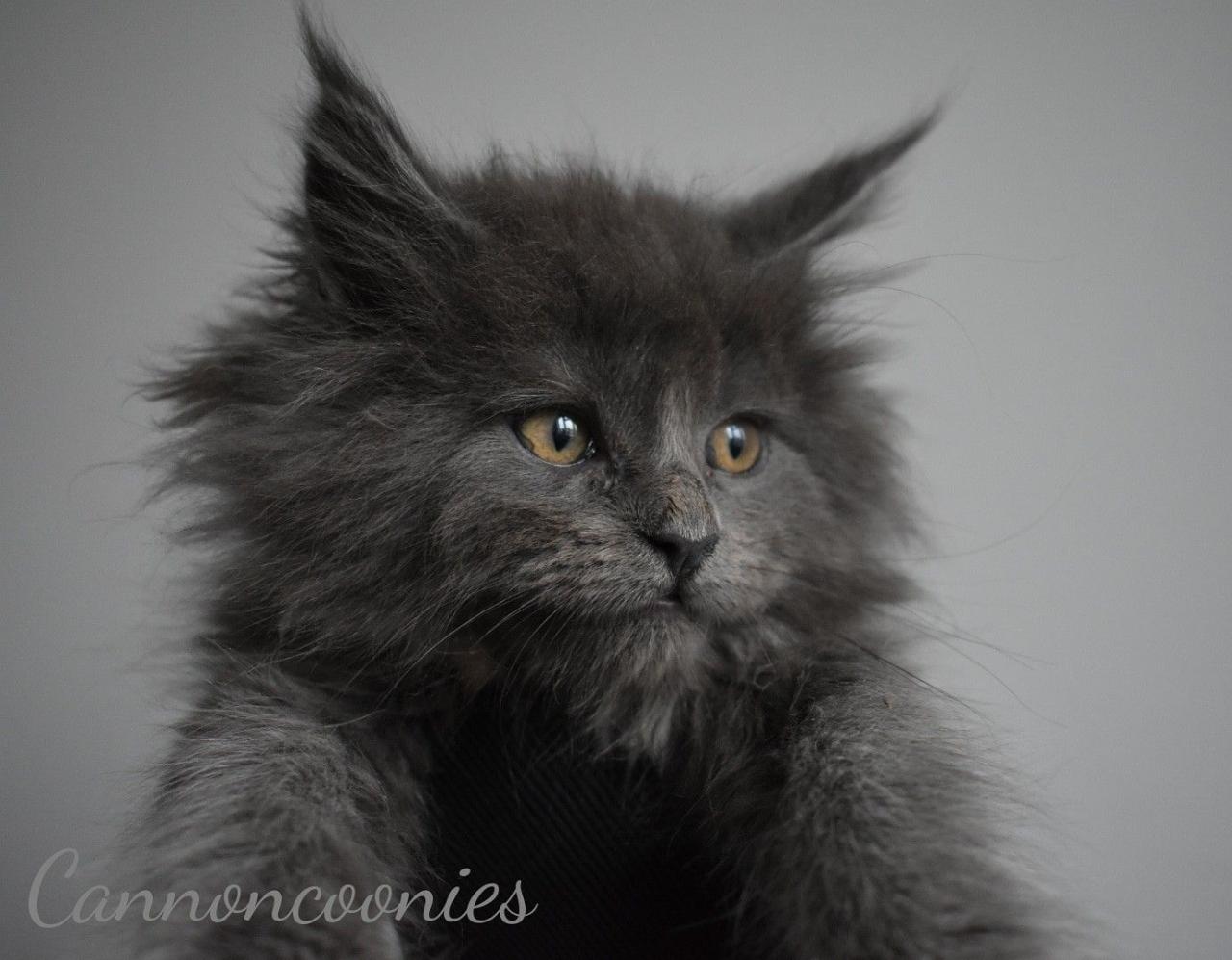
Training and socializing blue Maine Coon kittens are essential for their well-being and happiness. By providing them with basic training and exposing them to different experiences, you can help them become well-rounded and well-behaved cats.
Early Socialization
Early socialization is crucial for blue Maine Coon kittens. It helps them learn how to interact with people and other animals and reduces the risk of developing behavioral problems later in life. Start socializing your kitten as early as possible by introducing them to new people, places, and experiences.
Let them meet children, other cats, and dogs in a safe and controlled environment.
Basic Training
Basic training can help your blue Maine Coon kitten learn good manners and basic commands. Start with simple commands such as “sit,” “stay,” and “come.” Use positive reinforcement, such as treats or praise, to reward your kitten when they follow your commands.
Be patient and consistent with your training, and don’t punish your kitten if they don’t understand right away.
Preventing Behavioral Issues
Preventing behavioral issues in blue Maine Coon kittens is important for their overall health and well-being. Some common behavioral issues in cats include scratching, biting, and aggression. These issues can be caused by a variety of factors, including stress, boredom, or lack of socialization.
By providing your kitten with plenty of exercise, mental stimulation, and socialization, you can help prevent these issues from developing.
Closure: Blue Maine Coon Kitten
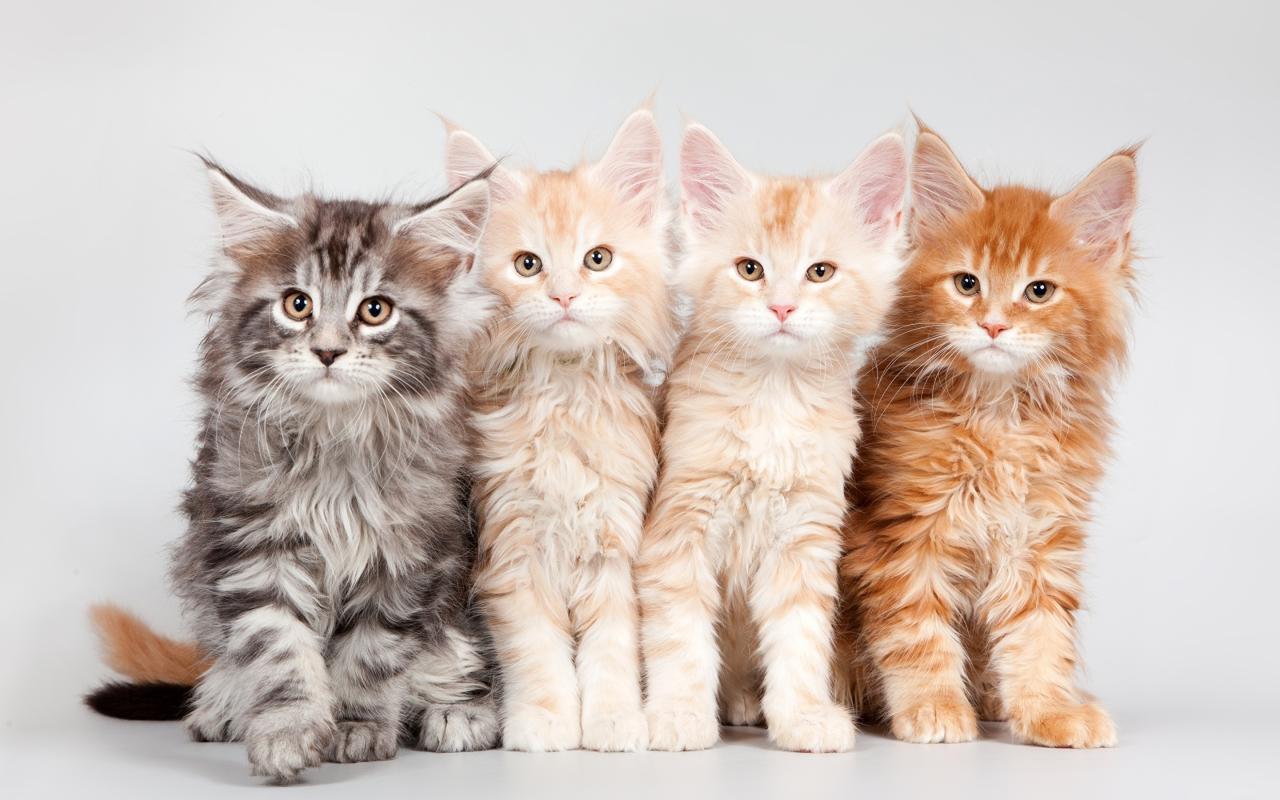
As we bid farewell to our exploration of the blue Maine Coon kitten, let us cherish the profound bond we have forged with these extraordinary creatures. Their playful antics, affectionate nature, and captivating appearance have undoubtedly left an indelible mark on our hearts.
May this guide serve as a constant companion, empowering you to provide the utmost care and love for your beloved feline friend.

